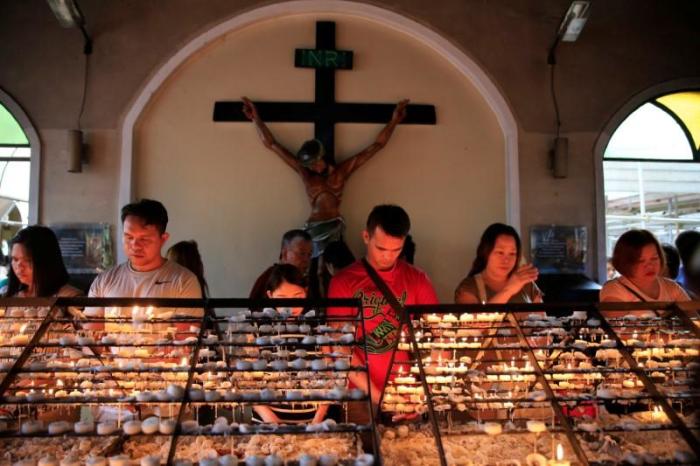Islamic extremists launch grenade attack near Philippines cathedral, injuring 14

Suspected Islamic extremists launched a grenade attack near a Catholic cathedral and radio station in the southern Philippines ahead of Christmas Day, wounding 14 individuals and traumatizing worshipers.
According to MindaNews, three men riding motorcycles threw grenades at members of the Armed Forces of the Philippines who were standing guard at the Immaculate Conception Cathedral and a radio station owned by the Oblates of Mary Immaculate in Cotabato on the island of Mindanao. At least seven soldiers and several nearby civilians were injured by the explosion.
Parish priest Zaldy Robles said mass-goers huddled in the cathedral upon hearing the explosion and the ensuing gunfight between soldiers and the assailants. They later returned to worship, but a service scheduled for 6:30 p.m. was canceled.
“It is sad that this kind of violence is happening while we are celebrating the holy Christmas season,” Robles told the news outlet. “Let us not let the reign of darkness rule over us.”
He added that it was fortunate the grenade was not thrown directly into the worship service: In 2009, a bomb attack at the same cathedral in Cotabato killed five civilians and wounded dozens of others.
The Dec. 22 attack was immediately followed by two more explosions: One by an IED in the town of Libungan, Cotabato province where six more were injured, and one in Upi, Maguindanao where two people were harmed.
Military spokesperson Major Homer Estolas insisted the military guards — not Christians — were the target. “It was clear that the suspects targeted the soldiers first,” he said. “The civilians were hurt because they were there waiting for their rides home.”
Cotabato City Mayor Cynthia Guiani-Sayadi condemned Sunday’s attacks as an act of terrorism. “We can rise above these acts of terrorism. We are resilient and strong enough to fight against these people whose mission is to disrupt our peace. We must all be united in the face of these adversities.”
No groups have yet claimed responsibility for the attacks in the predominantly Christian country, but the spokesperson of the military’s Western Mindanao Command, Major Arvin Encinas, told ABS-CBN News that the military could not dismiss the possibility of radical Islamic terrorist-linked groups being involved in the attacks.
“We do not discount the possibility that Bangsamoro Islamic Freedom Fighters and Daesh-inspired groups are behind this,” he told the outlet.
BIFF is an extremist group with ties to the Islamic State that operates in the Asia-Pacific country.
The region has been under martial law since 2017 following a series of attacks from suspected members of terrorist group in the area. The bombings come just over a week before martial law was supposed to be lifted.
In January, Islamic extremists claimed responsibility for an attack that killed 20 churchgoers and soldiers at a Catholic church in the Philippines. Two explosive devices went off at the Our Lady of Mount Carmel Cathedral, also known as the Jolo Cathedral, in the Mindanao region.
In June, Catholic priest Richmond Nilo was gunned down in the chapel in Zaragoza town in Nueva Ecija province, at the altar where he was preparing to celebrate mass.
One month later, pastor Ernesto Javier Estrella of the United Church of Christ in the Philippines in Antipas, Cotabato Province, was shot and killed on the Island of Mindanao.
Following his death, the Ecumenical Bishops Forum condemned the “ideology of death” prevalent under Duterte’s leadership that they said perpetrated harassment and killing of Christians.
“The number of violent attacks against Christian human rights defenders has alarmingly increased in the three years of President Rodrigo Duterte’s government,” the statement read, according to Morning Star News. “His avowed contempt for human rights has provided the institutional framework of this violence being committed against those who uphold the sanctity of human life and the dignity of the human person.”
The EBF appealed to Christians to speak and stand together in upholding human life and rights.
“Let us fight against the systematic design to undermine the participation and contributions of church people in the people’s struggle for equality, dignity and the common good,” the statement read. “Now is the Gospel moment to speak out and stand together in the name of Christ in upholding the God-given value of human life, dignity and rights. In God’s righteousness, may we ourselves become the justice we desire and demand for the killing of pastor Ernesto Javier Estrella, and for all Christians martyred for their witness to our faith.”



























